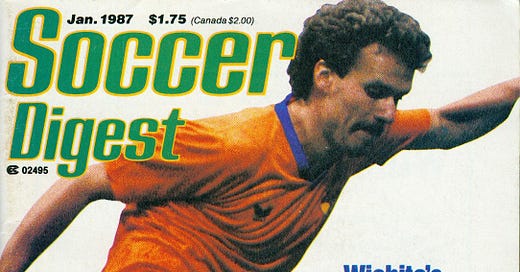[Editor’s Note: Part 2 of this story will only be available to paid subscribers. To subscribe, click the “Subscribe Now” button.]
Hands on hips. A scowl tattooed on his face. That’s the Jørgen Kristensen soccer fans remember. We sat in his lovely home on the outskirts of Køge, Denmark trying to persuade him to play along with a short humorous sketch for …
Keep reading with a 7-day free trial
Subscribe to MISL 1980s: The Story of Indoor Soccer to keep reading this post and get 7 days of free access to the full post archives.



